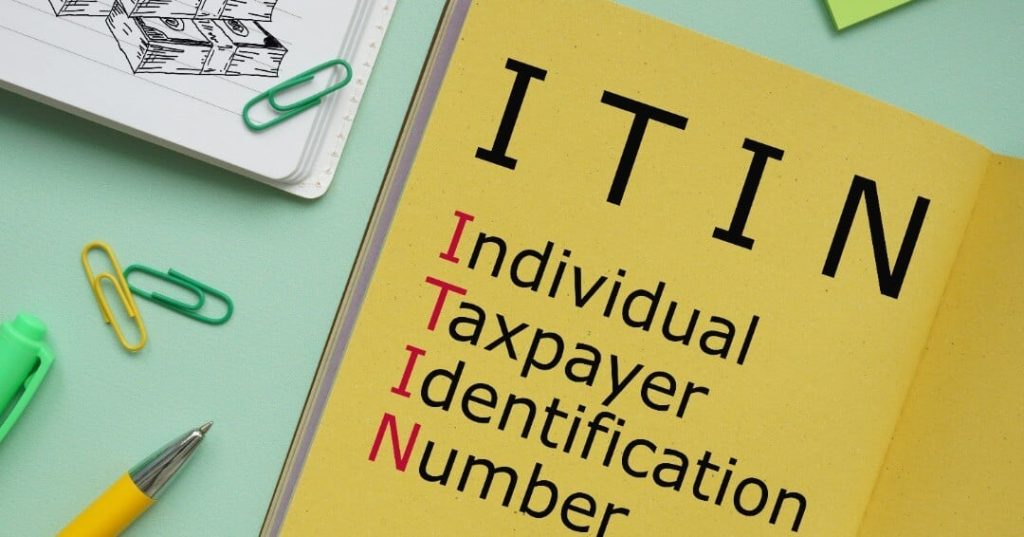Can I Hire an Individual with an ITIN Number?
In the ever-evolving landscape of employment and workforce diversity, questions often arise about hiring individuals with ITIN (Individual Taxpayer Identification Number) numbers. Many employers seek to understand the legal implications and considerations involved in hiring individuals with ITINs. This article aims to shed light on this topic, providing a comprehensive guide for employers and individuals alike.
What is an ITIN?
Before we delve into the legal aspects of hiring individuals with ITIN numbers, let’s clarify what an ITIN is. An ITIN, or Individual Taxpayer Identification Number, is a unique identification number issued by the Internal Revenue Service (IRS) to individuals who are required to have a U.S. taxpayer identification number but are not eligible to obtain a Social Security Number (SSN).
An ITIN is used for tax purposes and enables individuals without an SSN to comply with U.S. tax laws. It’s essential to understand that an ITIN is not the same as an SSN, and the eligibility criteria for obtaining one differ.
Legal Considerations
A. Hiring Regulations
One of the primary concerns for employers is understanding the legal framework governing the hiring of individuals with ITINs. While it is legal to hire individuals with ITINs, employers must ensure compliance with federal and state employment laws.
Employers are required to verify the identity and employment eligibility of all employees, regardless of their ITIN status. This verification process is typically carried out using Form I-9, Employment Eligibility Verification, mandated by the U.S. Citizenship and Immigration Services (USCIS).
B. Employment Eligibility Verification
The Form I-9 plays a crucial role in verifying an employee’s eligibility to work in the United States. When hiring an individual with an ITIN, they may present certain documents to establish their identity and eligibility. These documents can include a foreign passport with a U.S. visa and Form I-94, a Permanent Resident Card, an Employment Authorization Document (EAD), or a combination of acceptable documents listed on Form I-9.
Potential Benefits and Risks
Benefits of Hiring Individuals with ITINs
1. Diverse Workforce: Hiring individuals with ITINs can contribute to a diverse and inclusive workplace. This diversity can bring a range of perspectives, skills, and experiences to your team, fostering creativity and innovation.
2. Skill Diversity: Individuals with ITINs may possess unique skills and talents that can benefit your organization. Their diverse backgrounds can complement your existing workforce and enable your company to adapt to changing market demands.
3. Economic Contributions: ITIN holders often contribute to the U.S. economy by paying taxes, which supports various government programs and services. By employing individuals with ITINs, you may indirectly contribute to these economic benefits.

Risks and Challenges
1. Legal Compliance: Failing to adhere to hiring regulations and properly verify employment eligibility can result in legal consequences for employers. It’s essential to maintain accurate records and follow the guidelines set forth by the USCIS.
2. Document Maintenance: Employers must ensure that all necessary documents, such as the Form I-9, are properly completed and stored. Failure to maintain these records can lead to penalties.
3. Changing Regulations: Immigration and employment laws can change over time. Employers must stay updated on any alterations to hiring regulations and adapt their practices accordingly.
FAQs (Frequently Asked Questions)
Q1: Can I hire an individual with an ITIN number?
A1: Yes, it is legal to hire an individual with an ITIN (Individual Taxpayer Identification Number). ITIN holders are eligible for employment in the United States, and employers can hire them following the same legal procedures as other employees. The key is to ensure proper verification of their eligibility using the Form I-9.
Q2: What is the difference between an ITIN and an SSN?
A2: An ITIN (Individual Taxpayer Identification Number) is issued by the IRS for tax purposes to individuals who do not have and are not eligible to obtain a Social Security Number (SSN). While both serve identification purposes, an SSN is primarily issued to U.S. citizens and permanent residents and has a broader range of uses, including employment and government benefits.
Q3: What documents can individuals with ITINs provide for Form I-9?
A3: Individuals with ITINs can provide specific documents to complete the Form I-9 verification process. Acceptable documents include a foreign passport with a U.S. visa and Form I-94, a Permanent Resident Card, an Employment Authorization Document (EAD), or a combination of documents listed on Form I-9.
Q4: Are there any tax incentives for hiring individuals with ITINs?
A4: There are no specific tax incentives solely for hiring individuals with ITINs. However, employers are generally required to withhold taxes and report earnings for all employees, including those with ITINs. It’s essential to comply with tax regulations when hiring and paying employees.
Q5: What are the consequences of hiring without proper documentation?
A5: Hiring individuals without proper documentation or failing to follow the Form I-9 verification process can result in legal penalties for employers. These penalties may include fines, sanctions, and potential damage to an employer’s reputation.
Q6: How can employers ensure compliance with hiring regulations?
A6: To ensure compliance with hiring regulations, employers should:
- Familiarize themselves with Form I-9 requirements.
- Train human resources staff responsible for verification.
- Keep accurate records of completed Form I-9s.
- Stay informed about changes in immigration and employment laws.
- Seek legal counsel if uncertain about hiring practices.
Conclusion
Hiring individuals with ITINs can bring diversity and valuable skills to your workforce. However, employers must navigate this process carefully, ensuring compliance with legal regulations and documentation requirements. By understanding the legal considerations, benefits, and potential risks, employers can make informed decisions that benefit both their organizations and the individuals they hire. Staying up-to-date with changing regulations is essential to maintaining a compliant and diverse workforce.




